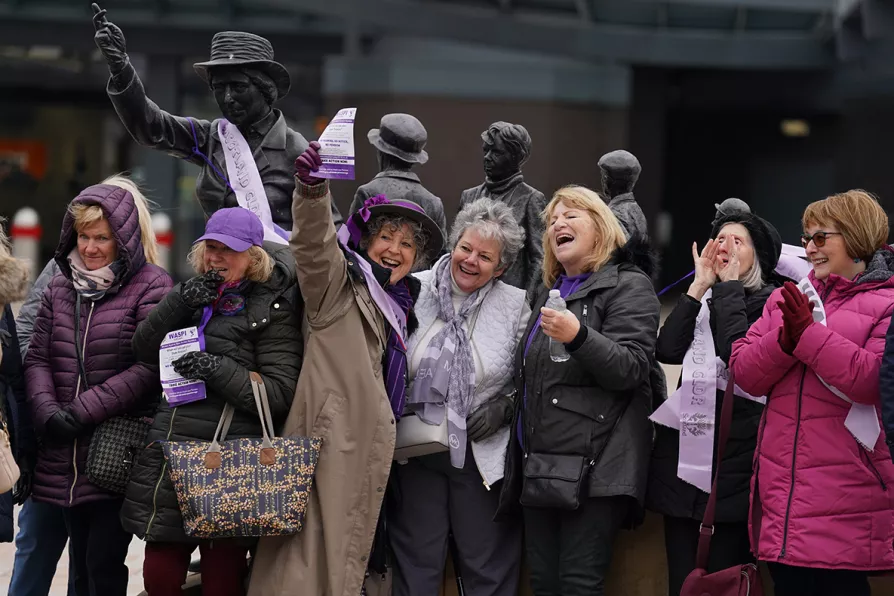The hard-right politician becomes Farage's latest recruit
Government should compensate Waspi women for pension trickery, ombudsman finds

 Campaigners for Women Against State Pension Inequality Campaign (Waspis) gather at the statue of political activist Mary Barbour, the woman who led rent strikes during the First World War, in Govan, Glasgow, to mark International Women's Day, August 18, 2023
Campaigners for Women Against State Pension Inequality Campaign (Waspis) gather at the statue of political activist Mary Barbour, the woman who led rent strikes during the First World War, in Govan, Glasgow, to mark International Women's Day, August 18, 2023
THE government faced demands to apologise and fairly compensate thousands of women whose retirement plans were demolished overnight after the raising of the retirement age.
A five-year investigation by the Parliamentary and Health Service Ombudsman (PHSO) released today found the Department for Work and Pensions (DWP) failed to adequately communicate the rise in pension age.
Some 3.8 million women born after April 6 1950 were hit by the changes.
Similar stories














